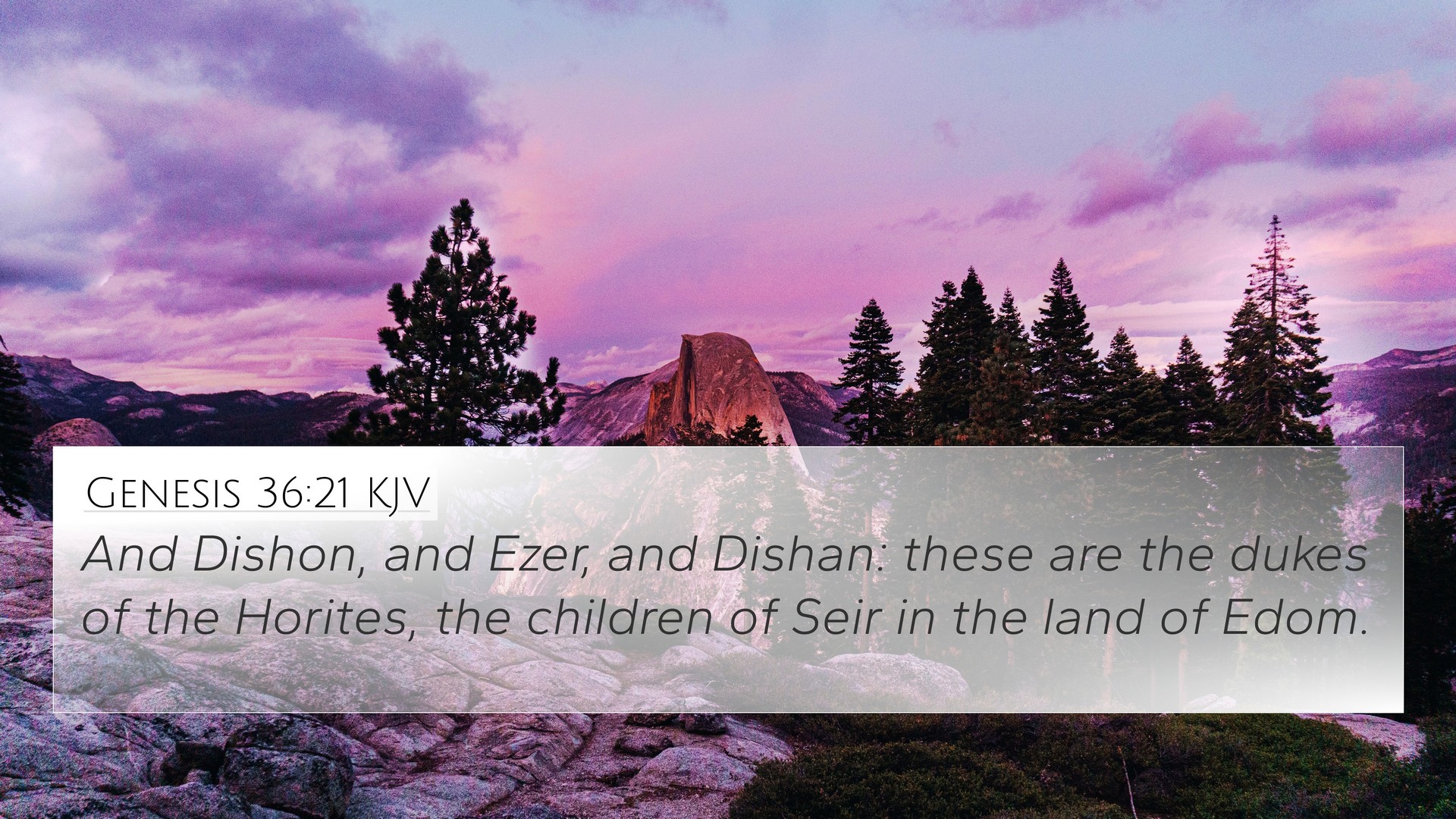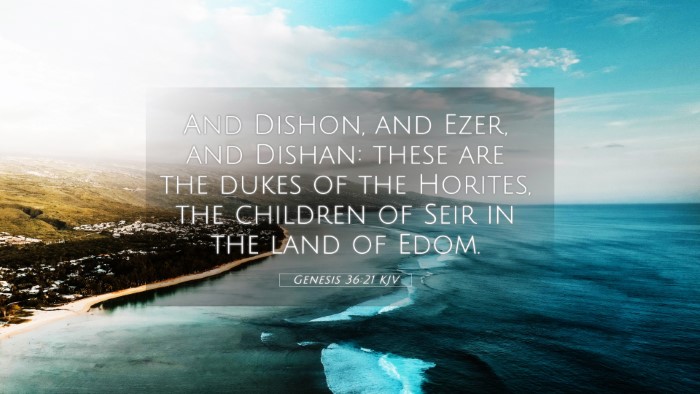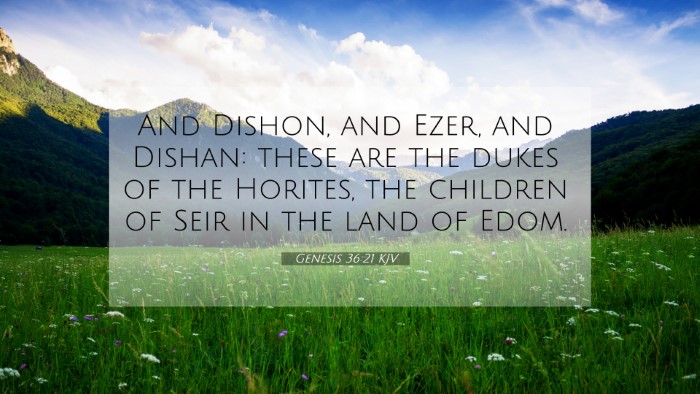Understanding Genesis 36:21
Summary: Genesis 36:21 discusses the descendants of Seir, the Horite, specifically emphasizing the tribal structure and lineage of the Horites. Understanding this verse requires examining the context of Esau and the relationship of the Edomites to the surrounding peoples.
Commentary Insights
Insights from recognized public domain commentaries provide a layered understanding of this verse:
- Matthew Henry: Matthew Henry elaborates on the significance of the Horites as a people group that inhabited the mountainous regions of Edom. He emphasizes the distinction between them and the Edomites, suggesting that this lineage illustrates God's providence in establishing nations and their boundaries.
- Albert Barnes: Albert Barnes provides a detailed analysis of the genealogical aspect of Genesis 36:21, indicating that the mention of these tribes serves to highlight the history and territorial divisions that existed in the time of the patriarchs. He points out the importance of lineage in biblical times for the understanding of divine promises and blessings.
- Adam Clarke: Adam Clarke remarks on the cultural and geographical implications of the Horites' existence. He suggests that their relationship with the Edomites reflects the broader context of ancient Near Eastern tribal dynamics, shedding light on the interactions between different peoples in biblical history.
Cross-References and Thematic Connections
This verse relates to several important biblical themes and serves as a connection point to various other scripture passages:
- Genesis 32:3: References the journey of Jacob towards his brother Esau, providing context for the ethnic backgrounds related to Edom.
- Deuteronomy 2:12: Discusses the Horites and their presence in Seir, highlighting God's direction in Israel's historical journey.
- Psalm 60:8: Mentions Edom, reinforcing the connection between Israel and other surrounding nations.
- Obadiah 1:10-14: Speaks about the latter fortunes of Edom and the conflict with Israel, echoing the historical enmity originating from their ancestral ties.
- Romans 9:12-13: Reflects on God's choice of Jacob over Esau, connecting the genealogical implications of Genesis 36:21 to New Testament themes of election.
- Genesis 14:6: References the Horites of Mount Seir, providing further context to the mention of the descendants.
- 2 Kings 8:20-22: Discusses the actions of Edom, illustrating the ongoing narrative regarding the descendants of Esau and their relationships with Israel.
- Hebrews 12:16: Warns against being like Esau, connecting the emotions and actions of biblical characters with their genealogical histories.
- Isaiah 34:5-7: Prophecies against Edom, providing insights into the longstanding consequences of their actions concerning Israel.
- James 4:4: Highlights enmity against God, which can trace roots back through the lineage of Esau's descendants and their ongoing struggles.
Thematic Analysis
The connections drawn through Genesis 36:21 not only provide historical detail but also invite thematic reflection on:
- Divine Sovereignty: The genealogies in Genesis reflect God’s providence in the establishment of nations, as seen through the lineage of Esau and how it contrasts with Jacob’s descendants.
- Tribal Identity: Understanding the distinct tribes and peoples mentioned allows for a better grasp of the ancient socio-political landscape.
- Interconnected Narratives: This verse serves as a reminder of how the stories of individual families and nations are interwoven throughout scripture.
- Covenantal Themes: How do the fates of these descendants relate to the covenantal promises made to Abraham, Isaac, and Jacob?
Tools for Cross-Referencing
To further explore the connections and implications of Genesis 36:21, consider utilizing:
- Bible Concordance: A comprehensive index of biblical terms and themes.
- Bible Cross-Reference Guide: Helps navigate through related verses and themes.
- Cross-Reference Bible Study: Methods to study through connections rather than isolated verses.
- Detailed Cross-reference Guides: Tools for identifying nuanced relationships across the Bible.
Conclusion
The exploration of Genesis 36:21 provides significant insights into the genealogies that are foundational to understanding Israel’s history and its place among the nations. With the aid of extensive commentaries and biblical cross-referencing, readers can appreciate the complex tapestry of relationships and themes that flow throughout scripture.


